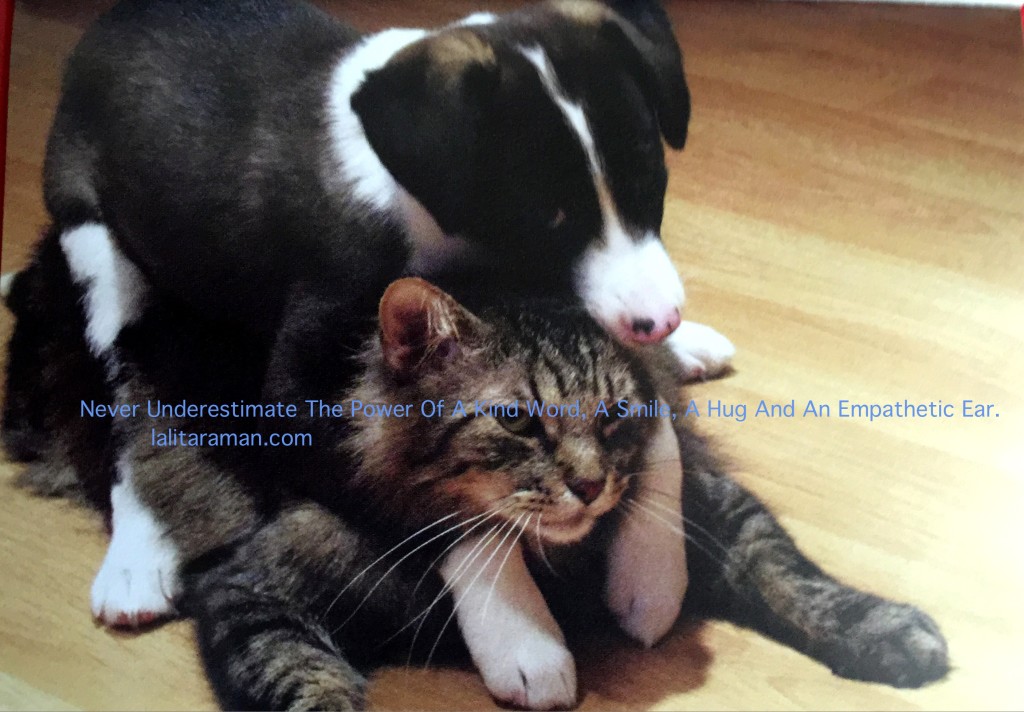Empathy, the ability to resonate with your requisite emotional response, to what others are experiencing in that moment.
“You are a Coach. One of the key essentials to being a good coach is to listen and not fix things”. This was one of the first things, I heard, in one of my coach certification trainings.
Empathy, is a necessity, not just as a coach, but as a human being in every walk of life including at work. Yet, it is lacking in many leaders, who need it the most.
Empathy is important in a cross cultural context, in evaluating somebody, in working with somebody, to understand what your customer needs and in the highly connected world that we live in where people are quite vocal in their opinions. You need empathy in understanding the dynamic needs of your audience, no matter, you are in sales, in back office, in front office, leadership and development facilitator or purchasing and requisition.
Two weeks back, a friend of mine was quite upset and frustrated. She narrated to me her experience, the previous day at work. One of her senior colleagues, did not give her an opportunity to do what she does best. He interrupted her, whilst she was doing her work and basically rode the show. Empathy was lacking from this senior colleague of hers who decided that he will have his way and not allow her to do what she is good at. His behavior of over dominance also caused her to doubt her confidence and her ability. This colleague had failed to see the world through her eyes and understand her perspective.
To be a good listener, it takes more than just hearing with your ears, as to what the person is saying—it requires focus, an innate desire, mindfulness and conscientiousness.
Empathy is:
→1. Allowing someone to do what they are good at and not standing in their way.
→2. If someone is not able to get to their goal, find out what stopped them from getting there and have the understanding to facilitate a solution that works best with that person and in that situation.
→3. If someone has made a mistake, calling attention to their mistakes indirectly. One way to do this is by asking questions.
→4. When you listen, you give your undivided attention of your mind, body and soul to the person who is talking. Listening requires concentration and this is evident not only from your ears but from your body language, your tone, your eyes and words. Know when to speak up and when to shut up.
→5.Understanding the cultural nuances with your observation powers, your ears and your heart.
→6. In the art of Persuasion, understand what is the benefit to that person and how does it matter to them ?
→7. To pick the cues in every relationship and in every conversation. How can you be empathetic if you have not been able to sense what the situation requires?
→8. When somebody is agitated, let them vent in a manner that is most suitable to that person and as the situation demands.
→9. Your behavior, your tone, your body language, and the words you choose can be the most effective form of empathy and make the fault seem easy to correct.
→10. Praise the slight improvement and praise every improvement. Be hearty in your approbation and lavish in your praise- Dale Carnegie
→11. Asking questions instead of giving direct orders.
→12. Allowing someone to save face.
→13. Disagreeing agreeably with others. Giving respect to the other person’s opinion and never saying that they are wrong.
→14. Honoring your word and staying true to your commitment.
→15. Acknowledging the goodness in others and not allowing your judgment to mar that.
What would you like to add to the above list of Empathy ?
Empathy is the EI, the intellectual and emotional curiosity to see other people’s reality, and having the mindset to adapt to what the situation demands.
You have a leadership mindset when you are empathetic which means you need to be focussed, mindful and adaptive to the current moment.
Empathy is imperative in transitions – to self and others, to see through the transitions that life journeys us through. Connect with me if you need coaching either on a one-on-one or as a group, to manage transitions, at work or in life, through coaching.








